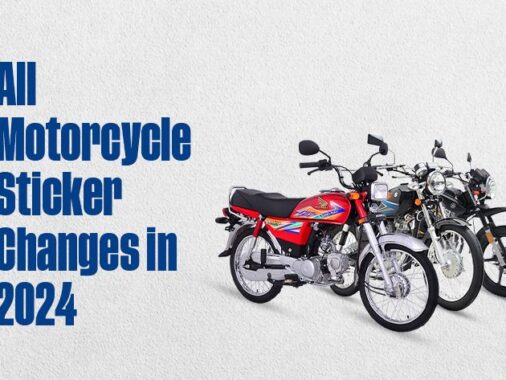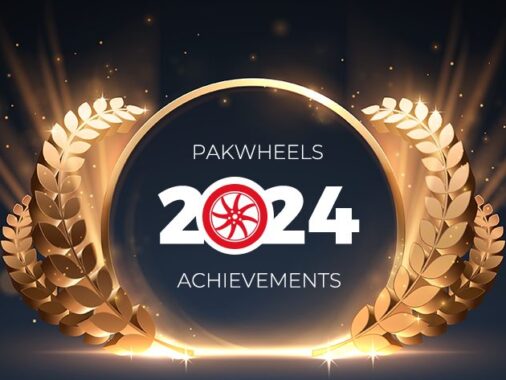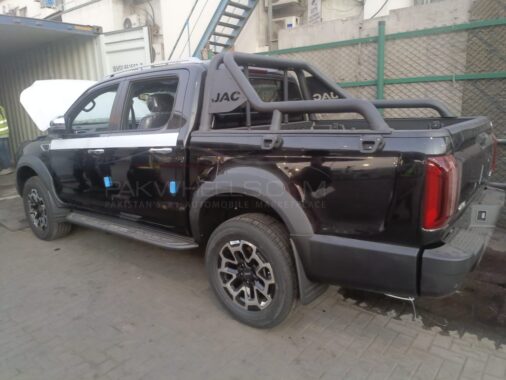The global automotive industry is embarked on embracing new energy vehicles (NEVs) with an aim to pave the way toward sustainable development. Countries hosting big car companies are following this shift in a swift manner to reduce carbon footprints but for us, the question is, where does Pakistan stand in this journey. With growing environmental concerns and advancements in technology, the rise of electric vehicles in Pakistan offers immense potential—but are we truly prepared for this change?
Current State of EV Adoption in Pakistan
Pakistan has seen a budding interest in EVs over the past few years. Initiatives such as the Electric Vehicle Policy 2021 aimed to reduce import duties on EVs, making them more affordable for consumers. Global brands like MG, BYD, Deepal, Kia and Hyundai have stretched their lineups to the electric machines which in turn has sparked curiosity among environmentally conscious consumers.
BYD, widely known as Tesla killer, has exceeded its annual sales target of 4 million vehicles, delivering over 3.76 million units in the first 11 months of 2024, including 506,804 units sold in November alone.
| Metric | 2024 Figures |
| Annual Sales Target | 4,000,000 vehicles |
| Vehicles Sold YTD (Nov) | 3,760,000+ vehicles |
| November Sales | 506,804 vehicles |
| Monthly Record Sales | Over 500,000 vehicles for five months |
| Year-over-year growth | Substantial growth compared to 2023 |
Furthermore, local automakers are also exploring opportunities to produce affordable EVs tailored to Pakistani needs. However, despite these developments, EV adoption remains at a nascent stage in the country, with only a small percentage of vehicles on the roads being electric.
Challenges For EV Adoption
A significant barrier to EV adoption in Pakistan is the lack of infrastructure. Charging stations, a cornerstone of electric vehicle feasibility, are sparse and largely concentrated in urban areas like Karachi, Lahore, and Islamabad.
For many, the idea of running out of charge in remote locations deters them from considering EVs altogether which also begets range anxiety among them. This urban-rural divide exacerbates the challenges for widespread adoption.
Economic constraints further complicate this situation. The high upfront cost of EVs, coupled with the devaluation of the Pakistani rupee, makes them inaccessible to most consumers. For an instant, Deepal and BYD, the entrants in EV lineup launched their cars L07, S07, BYD Seal and Atto 3 with the price range of Rs. 1.5-2 Crore. This price graph ceases EVs to only the opulent class in Pakistan.
Additionally, Pakistan’s energy crisis raises concerns about whether the grid can support a surge in EV charging demands. With frequent load shedding and reliance on fossil fuels for electricity, the environmental benefits of EVs are significantly diluted.
Consumer skepticism about EV performance, particularly regarding battery life and maintenance, adds another layer of resistance. Limited technical expertise and servicing options further deter potential buyers from making the switch.
Opportunities for Growth
Despite these hurdles, Pakistan’s EV market holds immense potential. With government incentives, local manufacturers could play a pivotal role in producing cost-effective EVs.
For instance, investing in assembling plants for EVs could reduce costs and promote job creation. Renewable energy sources like solar and wind power could support EV infrastructure, offering a greener alternative to traditional power grids.
Moreover, Pakistan can learn from countries like India and China, which have successfully integrated EVs into their ecosystems. Public-private partnerships and foreign collaborations could bring the necessary technological and financial support to Pakistan’s EV industry.
NEV Policy 2024
In a recent NEV policy 2024, the incumbent government has revealed a plan to establish 3,000 charging stations by 2030. More importantly, power rates at charging stations will be lower, making EVs more affordable for consumers. In addition to it, the government has also introduced subsidies of Rs50,000 for electric motorcycles and Rs200,000 for three-wheelers (rickshaws), with a total allocation of Rs. 4 billion.
Role of Stakeholders
Pakistan’s political intelligentsia need to design and implement robust policies prioritizing infrastructure development and providing subsidies for EV buyers.
To create affordable electric vehicles, the private sector, including automakers and startups, must innovate and expand charging networks. Meanwhile, consumers need to recognize the long-term benefits of EVs, not just for the environment but also for reducing fuel dependency.
The rise of electric vehicles is an opportunity for Pakistan to align with global sustainability goals and reduce its environmental footprint. However, this transition requires a collaborative effort from policymakers, businesses, and consumers to overcome the challenges and unlock the potential of EVs.
The question remains: will Pakistan seize this moment to drive toward a greener future, or will we let this opportunity slip away? The answer lies in the actions we take today.






